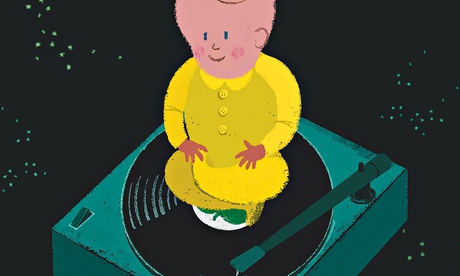
'It really was the last time when the world was simple and small," sighed the US television writer Adam Goldberg a while back, explaining his decision to set his new sitcom, The Goldbergs, in the 1980s. What made that era different, he argued, was that the internet hadn't yet erased distance; your world consisted mainly of your immediate family and surroundings. But if you teleported back to Goldberg's world in 1985, I don't think it's his lack of web access you'd notice first. Like me, Goldberg is in his late 30s; in the 1980s, he was a child. "The 80s wasn't 'the last time the world was simple'," one commentator, Paul Waldman, chided on his blog. "The 80s was the last time your world was simple." The hazy memory of a simpler past is enormously powerful in politics: see the Tea Party, or the hate-nostalgia of the Daily Mail. But look closely at the era being praised, whether it's the 40s or the 90s, and you'll frequently find the praise-giver was about seven at the time. Unless you're eight, the world really has changed since you were seven. But possibly not as much as you have.
Only marginally less cliched is the idea that the "millennial" generation is full of narcissists – overgrown children, bursting with entitlement, incapable of sensible decisions about love, work or money, because they're convinced that they're so special. It may be true that today's twentysomethings are more narcissistic than 50-year-olds, but when you analyse the data longitudinally, as researchers did in 2010, you find that's because twentysomethings usually are. Narcissism is a developmental stage, not a symptom of the times. Young adults have been condemned as the "Me Generation" since at least the turn of last century. Then they get older, get appalled by youngsters nowadays, and start the condemning themselves.
One culprit here is how desperate we are to see ourselves as the still, calm centre of the universe – fixed lenses, observing a rapidly changing world, but not changing ourselves. (And not only fixed, but omniscient: when the author Elizabeth Wurtzel wrote an essay attacking millennials for not having produced a cultural equivalent of The White Album, it apparently never occurred to her that there might be culture of which she wasn't aware.) In psychology, the term "consistency bias" refers to the well-studied way we'll retroactively adjust our attitudes to avoid admitting to being changeable. Ask students to rate their anxiety before an exam, then to recall those feelings later, and they'll adjust their memories based on their performance: those who did well underestimate their earlier worry; those who did badly overestimate it.
Goldberg and the anti-narcissist brigade – and maybe all of us – may be victims of a bigger, existential version of this: an unwillingness to concede that "who we are" is something rather unstable. There's nothing wrong with a bit of nostalgia. But believing that change happens only to your environment, or other people, makes life harder to navigate: it means you'll always assume it's your spouse, job or city that's not how he, she or it used to be, rather than yourself – thus blinding you to possible solutions when tensions arise. Of course, back in my day, I think most people realised this. But now everything's gone to the dogs. I blame all this newfangled swing music.
oliver.burkeman@theguardian.com
Follow Oliver on Twitter.

